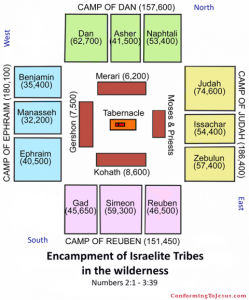Do you remember in the Book of Job what God said regarding all the advice that Job’s three friends gave him? God wasn’t very happy that they had been telling Job all about what God does, how he feels, and what he thinks. In fact, let’s see what happened, in Job 42:7 (CJB):
After ADONAI had spoken these words to Iyov, ADONAI said to Elifaz the Teimani, “My anger is blazing against you and your two friends, because, unlike my servant Iyov, you have not spoken rightly about me.
I bring this up because recently I have posted something that resulted in my being told I wasn’t really saved. And you know what? … this wasn’t the first time.
If you prefer to watch a video, click on this link: Watch the video.
So how does anyone know who is “saved”? What is salvation? Is it something we can touch? Is it something that we can see? Is it visible to others, like a certificate on my wall or a medal I can wear? Can anyone know someone is “saved” simply by what they write?
We are told we can tell righteous people by the fruits they produce (Matthew 7:16), but how can we really know their “fruit” if we only see what they post on social media? Or only hear what they say now and then?
On an apple tree you will find the occasional rotted or misshapen apple, so does that mean the tree, itself, is no good? Is every single grape in the vineyard perfectly formed and juicy? If a pear tree produces a few pears that are not tasty, should I destroy the tree?
I believe salvation is a spiritual relationship between the person and God, and the only ones who can truthfully say what the condition of that relationship is… is that person and God.
So, why is it, then, that there are people who think they know what that relationship is? I have been told, on more than one occasion, that I am not really saved because of what I have said in one of my ministry messages.
I have been told I don’t have a true relationship with Jesus because I believe the Torah is still valid. I have been told I am not really saved because I do not believe that most of the things written in the New Covenant writings are “God-breathed” divine instructions. I have been told I am not really saved because of my beliefs about certain holidays or my refusal to pronounce the Tetragrammaton.
Look…I accepted Yeshua as my Messiah many years ago, and the constant blessings in my life have confirmed that I am in good standing with him, as well as in good standing with God. I pray constantly, I fail constantly, and I ask for forgiveness constantly.
And not to brag, but for the record, I have had many people over the years confirm that I have a definite gift for teaching and understanding of God’s word, so when I get told I am not really saved, I tend to ignore it. However, I will listen, just in case, I have made a mistake. Despite praying every day to only say in this ministry what is right in God’s eyes, I can’t trust myself to always excise any personal feelings or not notice a personal peeve that might sneak its way in.
And when someone tells me I am not really saved (which, I am happy to say, rarely happens) I have to ask, “What makes them think they know?”
Are they God?
Do they have a Bat-phone connection with God where he confides in them who is in the Book of Life and who isn’t?
Can they see into my heart, as God does?
What divine power have they been given to discern the status of someone else’s personal relationship with the Almighty?
And most important of all, what makes them think they can speak for God?
Job’s friends thought they could speak for God. That didn’t work out very well for them, did it?
So here’s the message for today, from someone who may or may not be saved:
Don’t speak for God!
If you think someone is wrong, tell them why you think so with compassion and respect. Show the biblical justification for your opinion and where you believe their understanding has been misguided. But when it comes down to someone’s relationship with God, I strongly suggest you leave that between the person and God.
There are many traditional Christian teachings I passionately disagree with: I have issues with the letters Shaul wrote, about Christian denial of the validity of the “law”, about the “Once Saved, Always Saved” doctrine, and I definitely have major problems with the Replacement Theology lie. And it isn’t just Christianity- there are also many issues I have within Judaism regarding Talmudic regulations.
I have argued (nicely, for the most part) with people I like and respect about calendars, holidays, and other topics that aren’t necessarily salvation issues, but important, nonetheless.
However, no matter how heated these discussions have become, I have NEVER had the audacity to tell someone they aren’t really saved.
To those who feel they can tell someone whether or not they are saved, there is one, and only one, who can decide which of us is written in the Book of Life; and, if I may be so bold as to say, it ain’t you!
Thank you for being here and please subscribe, share these messages with everyone you know (saved or not), and if you like what you hear then please consider buying my books.
And remember: I always welcome your comments.
That’s it for now, so l’hitraot and Baruch Ha Shem!

